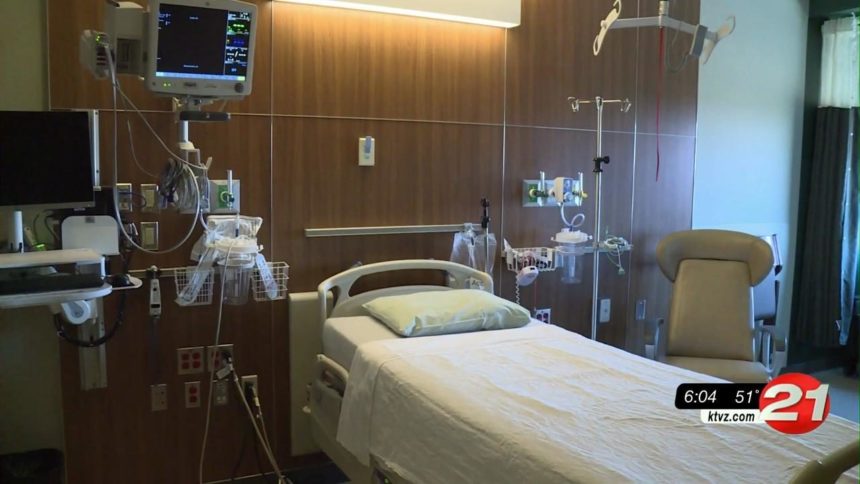St. Charles Bend hit with $26.5 million wrongful death suit

Family claims doctors failed to properly diagnose, act quickly on test results
BEND, Ore. (KTVZ) -- The family of a southern Oregon woman who died at St. Charles Bend in early 2017 has filed a $26.5 million wrongful death lawsuit against the hospital and two doctors, claiming they failed to properly diagnose and treat her symptoms with hydrocortisone, which would have saved her life.
The lawsuit was filed Dec. 24 in Deschutes County Circuit Court on behalf of the estate of Casey Galusha-Beck, a Jacksonville wife and mother of two young children who died at the hospital on Jan. 17, 2017 at the age of 32.
She arrived at the hospital's emergency room on Jan. 2 with abdominal pain, fatigue, low blood pressure and a low glucose level, the lawsuit says. It also was noted that she had been ill with nausea and stomach pain frequently over the previous 6-12 months.
"Adrenal insufficiency occurs when a patient's adrenal glands do not make enough of the body's main stress hormone -- cortisol, which is essential for life," the lawsuit states. It notes people who are diagnosed with that issue can take a small daily cortisol steroid "and lead normal lives with normal life expectancies."
The lawsuit says "the main symptoms of adrenal insufficiency are exactly what" Galusha-Beck showed up at the hospital suffering from. It said the medical issue can be treated in crisis with readily available hydrocortisone, which "works essentially as an antidote and immediately replenishes the patient's cortisone levels."
Instead, the suit claims, she was initially treated for a "relatively mild" infection caused by mastitis, an inflammation of the breast tissue. It said doctors did not conduct "a simple cortisol test," when "medical students and first-year residents are taught to identify, diagnose and treat adrenal insufficiency when those symptoms are present."
The lawsuit claims internal medicine doctors Farah Madhani-Lovely and Jason Hughson failed to diagnose and treat the underlying issue, despite issues that continued after resolving the infection.
Four days after Galusha-Beck arrived at the hospital, a cortisol level test was performed and came back with a level of zero, the suit states, which "constitutes an adrenal crisis and is catastrophically dangerous."
Hughson was made aware of the test results, the lawsuit claims, but "ordered more tests and took a wait and see approach."
Several hours later, while the results of the added lab work were pending, Galusha-Beck had a circulatory collapse and was "found blue, without a pulse or breath," the suit claims. Two other doctors responded, resuscitated her and, after seeing her symptoms and lab results, quickly administered hydrocortisone.
But "because of the significant amount of time that passed," the suit claims, Galusha-Beck "suffered severe brain damage and was diagnosed as being in a permanent vegetative state." She died several days later.
"The standard of care for every doctor and resident when treating an unstable patient with a dangerously low cortisol level is to immediately administer hydrocortisone and not to do delay administration of hydrocortisone for further testing because the patient could die while test results are pending," the lawsuit states.
But Hughson, while waiting several hours for test results, "never administered hydrocortisone nor did anything else to treat her adrenal crisis," the suit claims.
The family's attorney, Christopher Kuhlman of Bend, said, "The adrenal crisis (lack of cortisol in her body) caused her body to go into a circulatory collapse, causing permanent brain damage and death."
A St. Charles representative said the hospital does not comment on pending lawsuits.
